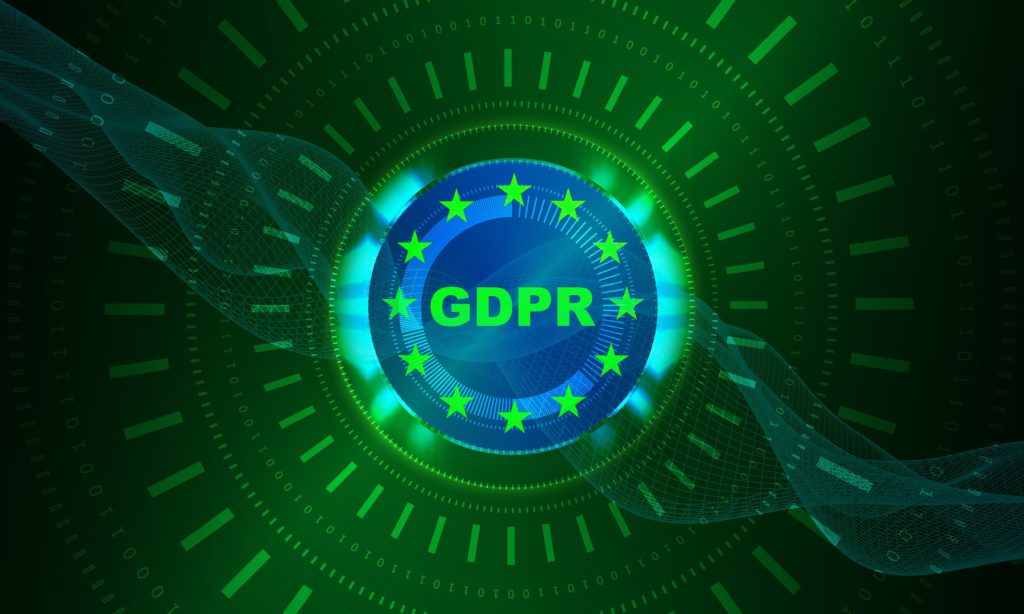
Introduction to General Data Protection Regulation (GDPR
With every registration form, online purchase, and new account you create, you share sensitive personal information. Email addresses, phone numbers, banking information, passwords, and the list goes on. Companies and online marketers claim that collecting this information is only to provide you with a better browsing experience. But how can you be sure that your data is protected? General Data Protection Regulation seeks to ensure consumers have some rights and safeguards when sharing personal information. Having a company that complies with GDPR benefits your customers. But the public will also perceive your company to be the professional, safe option.
What is the General Data Protection Regulation?
GDPR or General Data Protection Regulation is a set of data privacy regulations adopted by the EU Parliament in 2016 and affected in May 2018. The goal of GDPR is to harmonize data privacy laws across Europe and sets the standard for how consumer information is collected, processed, and used.
Who Must Comply with General Data Protection Regulation?
GDPR applies to all entities who “process” “personal data” related to individuals residing in the European Economic Area. As a result, the vast majority of entities that sell products or provide services to individuals located in the European Economic Area are subject to GDPR.
The concepts of “processing” and “personal data” are at the core of GDPR, and a determination of whether GDPR applies to a particular entity:
- Processing: “any operation or set of operations which is performed on personal data or sets of personal data, whether or not by automated means, such as collection, recording, organization, structuring, storage, adaptation or alteration, retrieval, consultation, use, disclosure by transmission, dissemination or otherwise making available, alignment or combination, restriction, erasure or destruction.”
- Personal Data: “any information relating to an identified or identifiable natural person (‘data subject’); an identifiable natural person is one who can be identified, directly or indirectly, in particular by reference to an identifier such as a name, an identification number, location data, an online identifier or to one or more factors specific to the physical, physiological, genetic, mental, economic, cultural or social identity of that natural person.”
Such definitions are broad, and “personal data” generally includes all information linked to a specific individual. Moreover, “processing” covers almost all uses of personal data.
What Does GDPR Mean for the Future of My Company?
Almost every service we use – from retailers to email providers and social media networks – collects and processes personal data. Entities may collect, store, and use the various personal information we provide. This includes names, addresses, and credit card numbers. So businesses across industries
In recent years, the accelerated aggregation of personal data has led to the most severe data breaches in history. For example, the 2017 and 2018 breaches of Equifax, Facebook, and Aadhar collectively affected more than 1.25 billion individuals. But GDPR seeks to ensure personal information is protected against those who would seek to use it maliciously and against the entities that collect it.
In early 2018, Facebook lost more than 100 billion dollars in share value in a matter of days. This happened when news of the Cambridge Analytica data scandal broke. Facebook shared with Cambridge Analytica personal information related to an estimated 87 million users without their consent. In March 2018, just two months before GDPR came into effect, Google did something similar. They released findings that between 2015 and 2018, its Google+ social network contained a glitch allowing developers to access the personal “Google+” profile data of countless users.
When managing data there’s a lot that can go wrong that can compromise your customer’s privacy. Knowing how GDPR affects your business will help strengthen your systems and remain in compliance with both the EU and local laws.
GDPR Compliance With Bagchi Law
The litany of data breaches and the frequent misuse of personal information has not gone unnoticed. Even in the US. Mainly in response to the misuse of personal data by big-tech companies such as Google, Facebook, Amazon, and others, various states implement regulations applicable to personal data and cybersecurity. For instance, the California Consumer Privacy Act went into effect on January 1, 2020. Additionally, the New York State Legislature’s Cybersecurity Regulations went into effect on March 1, 2019.
Want more information about how general data protection regulation could impact your business? Schedule a consultation with our team.
Related
For international business owners and investors in 2025, no word has caused as much headache as the word “tariffs.” The concept of both raising money and protecting local industry by taxing imports is not…
>>The Small Business Investment Act of 2025 makes sweeping changes to Qualified Small Business Stock (QSBS). Effective July 5, 2025, these reforms are designed to make QSBS even more attractive…
>>Why Growing Companies Choose Fractional CISOs: An Interview with Stacey Robinson of GP Tech Advisors
In today’s digital landscape, growing companies face mounting pressure to demonstrate cybersecurity maturity. Whether it’s to win deals, attract investment, or pass audits, the need for robust security leadership is…
>>Forming a new business is a detailed undertaking–there is a lot to consider; a great many pieces to the puzzle. Some choices you make can be changed later with relative…
>>Bagchi Law maintains a close and constant eye on macroeconomic trends, both globally and domestically. Take a look at what the reports are saying heading into Q4, 2025. Let’s first…
>>As artificial intelligence (AI) becomes increasingly embedded in everyday products and services, businesses must take a closer look at how it intersects with privacy obligations. Disclosing your AI practices in…
>>Contact Us
Let's challenge the default together